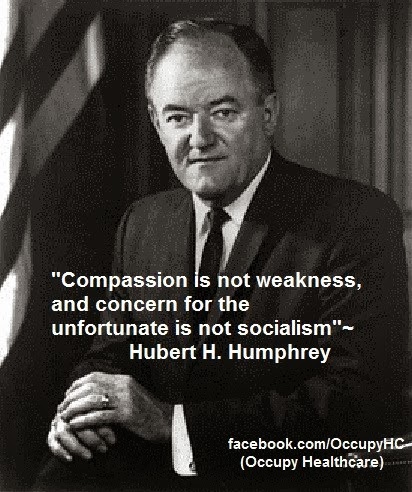The Last Soldier Executed for Desertion
World War II veteran Nick Gozik says that the bravest soldier he encountered during two years of combat was the one he saw executed for desertion.
That soldier proved to be the only one of more than 20,000 convicted deserters during that war to suffer the death penalty. The last deserter to be executed had been during the Civil War. There have been no others.
And even if Sgt. Bowe Bergdahl were to be convicted for desertion for allegedly walking away from his post prior to his capture by the Taliban five years ago, nobody imagines that he might face the death penalty.
But from the last execution comes a lesson in the importance of considering the totality of a person and not allowing a charge of desertion to eclipse everything else about the accused.
With Bergdahl now poised to come home after being exchanged for five top Taliban commanders, it is worth going back to a winter day in France nearly seven decades ago.
“On Jan. 31, 1945,” former Army Lt. Gozik said on Thursday. “How can I forget it? I was 25 years old. That was my birthday.”
Gozik is now 94, but he has a crystalline memory of being summoned to headquarters as a new officer with a battlefield commission and then loaded with his men onto trucks and driven through wet, heavy snow to the town of Sainte-Marie-aux-Mines. They were directed into a schoolroom for a time and then they were marched across a small wooden bridge over a stream that ringed a walled estate.
“Like a moat,” he said.
Beyond an iron gate, they entered a courtyard. They were called to attention and stood with no idea why they were there.
“The Army never tells you anything,” he said.
After a short time, two military policemen escorted a young man from a caretaker’s shed. His uniform had been stripped of all insignia.
“He had an Army blanket over his shoulders,” Gozik recalled. “He was bareheaded.”
The man and the MPs started toward a wooden post and Gozik understood that his unit was there to witness an execution. Gozik would have expected the MPs to have been required to drag the condemned man and for him to be struggling, kicking, and screaming.
Instead, the man’s step was absolutely even, unhesitating as he took what he knew to be his final strides.
“All I could see was a young soldier, blond-haired, walking as straight as a soldier ever walked,” Gozik recalled. “I thought he was the bravest soldier I ever saw.”
Gozik considered how he might have comported himself in those circumstances.
“I said to myself, ‘Could I do that?’” Gozik remembered. “He walked right up to that post. You wouldn’t believe it.”
Gozik watched as the MPs used garrison belts to tie the condemned man to the pole. A Catholic chaplain approached the man and Gozik saw it was the same priest who had sometimes said Mass for his unit in the forested battlefield, using the hood of a Jeep as an altar.
Gozik was only some 10 yards away, close enough to make out much of what the priest and the man were saying.
“It sounded like they were praying the Hail Mary,” Gozik recalled. “Then I thought I heard the priest say, ‘When you get there, say a good word for me, will you?’ Then the condemned man said, ‘I will, Father.’”
The condemned man’s head was covered with a satiny black hood that the Army had asked a local woman to make.
“They didn’t tell her what it was for,” Gozik noted.
A general read aloud the order that Pvt. Eddie Slovik was to be executed for the crime of desertion. A young officer loaded the rifles of the 12-man firing squad each with a single bullet, one of them a blank. The squad took position and the officer called out.
“Ready… aim… fire!”
Gozik had been around considerable gunfire and he had not expected it to be as loud as it was, jolting him and reverberating beyond the walls.
“It was deafening,” he recalled. “It echoed through the hills.”
An Army doctor stepped over with a stethoscope and chastened the firing squad when he determined that the heart was still beating.
“I could hear him muttering, ‘What’s the matter, can’t you shoot straight?’” Gozik remembered.
The doctor checked again as the firing squad began to reload.
“After what seemed an eternity, but probably was 15 seconds, the doctor said, ‘I pronounce this man dead,’” Gozik recalled.
Slovik had died 18 days before reaching his own 25th birthday. Gozik and his men were ordered to turn about face and march back out through the gate and over the little bridge to the trucks. He rode away with the memory of what had seen and heard.
“It didn’t feel right for me,” he recalled.
He went back to the war and was among the lucky ones to survive, returning to his wife and the child who had been born just 10 days before he left and now was 2 years old. He had five other wonderful children and went into sales. He was in a drugstore on a lunch break when he chanced to see a book titled The Execution of Pvt. Eddie Slovik. He found the book to be generally accurate and noted that he was listed among those who had been present, though his name was spelled Cozik.
“The serial number was right,” he later said, rattling off, “20314261.”
The book reported that Slovik had been arrested for petty theft several times as a youngster and he initially thought his criminal record would exempt him from military service. He had been drafted anyway soon after he got married and he wrote his wife at least once a day after he was shipped off to war.
After a brief encounter with combat, Slovik declared himself constitutionally unsuited for warfare. He reported that he was too terrified of weapons even to carry one. He refused to go back to the front and went up to a rear area cook, presenting him with a written statement.
“I, Pvt. Eddie D. Slovik, 36896415, confess to the desertion of the United States Army…” it began.
The cook went to an officer, who gave Slovik an opportunity to tear up the letter and pretend it had never been written. Slovik declined and a second officer repeated the offer. Slovik declared that he would simply run away if he were sent back into harm’s way.
From the fate of other deserters, Slovik apparently figured that the worst he faced was being sentenced to 20 years hard labor. He clearly felt that this was preferable to any more combat.
Slovik wrote in one of his last letters to his wife that he had always been unlucky save for when he married her and he should have known that turn for the better would not last. He reportedly told the MPs who led him from the caretaker’s shed that he had been chosen as an example because of his criminal record.
“They’re shooting me for the bread and chewing gum I stole when I was 12 years old,” he supposedly said.
He was buried in a remote corner of a cemetery in France along with 95 other Americans soldiers who had been executed, these for rape or murder, all the graves marked only with a number.
When the book was published in 1960, Frank Sinatra bought the movie rights and announced plans to produce and direct it himself. The press then got word that Sinatra had hired a blacklisted screenwriter named Albert Maltz.
Sinatra vowed not to back down in the face of the ensuing uproar. But Joseph Kennedy, Sr. reportedly called Sinatra and voiced concern that his son’s friendship with the singer might make voters think John Kennedy was soft on communism and cost him the presidential election. Sinatra shelved the project.
Meanwhile, Slovik’s wife, Antoinette, continued to petition for his remains to be returned to his native Detroit. She had yet to succeed when she died in 1979 and a Michigan politician took up the cause, arguing that if we could forgive our foes in World War II we should also be able to forgive Eddie Slovik.
The exhumation and transfer was finally approved in 1987. Slovik’s bad luck briefly reasserted itself when his remains were put on the wrong plane and ended up in San Francisco. He finally arrived in Detroit two days later and was laid to rest beside his wife.
In 2010, Nick Gozik made a kind of pilgrimage to the cemetery on the day after Veterans Day. He placed an American flag on the grave of the man he still said was the bravest solider he ever saw.
“I told him I was sorry it took me so long to get there,” Gozik recalled.
He continues to feel to this very day that he had witnessed something fundamentally unfair in that courtyard in 1945.
“They picked this young kid Eddie Slovik because they had to show the rest of the soldiers in that area you don’t desert and you have to pay the price,” Gozik said on Thursday. “Why did they pick him out of all those thousands who deserted?”
Yet, however strongly he continues to feel that Slovik was treated unfairly, Gozik has little immediate sympathy for Bergdahl, who had apparently just walked away from his buddies and obligated them to search for him at considerable peril.
“I read about it and I think the man wasn’t deserving to be traded for five terrorists,” Gozik said. “I think that was the wrong thing to do. I think that after he’s interrogated he should be tried for desertion.”
Gozik added, “He knew what he was doing.”
But as much as he disapproves of Bergdahl based on everything he has heard, Gozik remains someone who can say that the bravest solider he ever saw was one being marched up to a wood post to be executed for desertion.
These 69 years later, Gozik seemed to recall not just the details of the execution but one of its lessons. He said of Bergdahl, “We don’t know. We have to find our what he went through, what he did.”























No comments:
Post a Comment